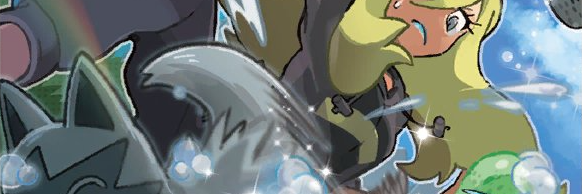
re: critique of critiques of princess narratives
@Satsuma @aschmitz see they wanted the rescuer to NOT be a prince specifically for the “alliance with the proletariat” vibes; instead it is Rapunzel being a princess which is more or less irrelevant to the plot (well, a metaphor for her being a queerdo)
you’d have to watch it; they use it quite well i think
re: critique of critiques of princess narratives
@aschmitz (in Tangled’s case specifically it isn’t; the protagonist is stolen away as a young child so the mother who raised her is not actually her biological mother, who she mostly doesn’t know; yes you could argue this ultimately reinforces biological ties.) in the general case, i do agree with you and think that the dual role of the princess as someone who is both close to the monarchy and consistently rendered powerless by it is a large part of why those stories are compelling. the question then is how do you respond in that situation? do you go along with the disenfranchisement because eventually one day you will be queen, or do you stand up for yourself/others? and i think stories virtually never go with the first option; they’re a lot more subversive than people think
re: critique of critiques of princess narratives
@aschmitz i agree with this, but as to your parenthetical, not necessarily, but i think even children understand that the monarchy is a literary trope and not to be taken literally
for example Tangled is the story of a girl who is happily complacent in (metaphor for suburbia) until she goes out and sees the world and realizes that her parental figure was lying to her about the dangers of (metaphor for urbanity). the girl also happens to be a lost princess and also happens to be reunited with the monarchy at the end of the story without critique. the story could have been written without that bit, but i’m not convinced it would actually have been any better at getting across what it was trying to convey; “your real family might wind up being something different than the family that raised you” is a salient message and the “lost princess”/monarchistic trappings make this very straightforward to convey. notably, the story ends before the protagonist is ever properly in a position of real power, so the situation remains firmly hypothetical (which is characteristic for these stories; you never see princesses actually wielding state power because their role is firmly metaphorical)
critique of critiques of princess narratives
the radical potential of the princess narrative is to say to white girls “look, you might be born into privilege, your life might be great, but you can still make ethical choices, and you can still side with the downtrodden and the labourers and the oppressed, but it might mean disobeying your parents and going on an Adventure”
this is a much more concrete, useful, and resonant message than telling white girls “actually your privilege does not exist and/or you can/should just ignore it”, which is what “children’s movies should not advocate monarchy” takes always inevitably boil down to
@aescling @coriander mastodon is a boomer website so that’s fitting
@coriander i managed to limit myself to building a lego house before thanksgiving
@aescling maybe YOU are not remotely innocent
@coriander just get rid of Kansas City
@djsundog i think for me this is November and December is more “let’s eat hella good” but either way
@wallhackio in fairness it’s probably the best genre for post malone
@SportsGoblin horror flashbacks to seahawks fans asking why they didn’t just throw the ball every down
- Header
- Delinquent (BREAKpoint 98a) by Megumi Mizutani
Administrator / Public Relations for GlitchCat. Not actually glitchy, nor a cat. I wrote the rules for this instance.
“Constitutionally incapable of not going hard” — @aescling
“Fedi Cassandra” – @Satsuma
I HAVE EXPERIENCE IN THINGS. YOU CAN JUST @ ME.
I work for a library but I post about Zelda fanfiction.
For the time being, this is mostly a mirror of <https://status.ladys.computer/>. Want to get in touch? E·mail me!
